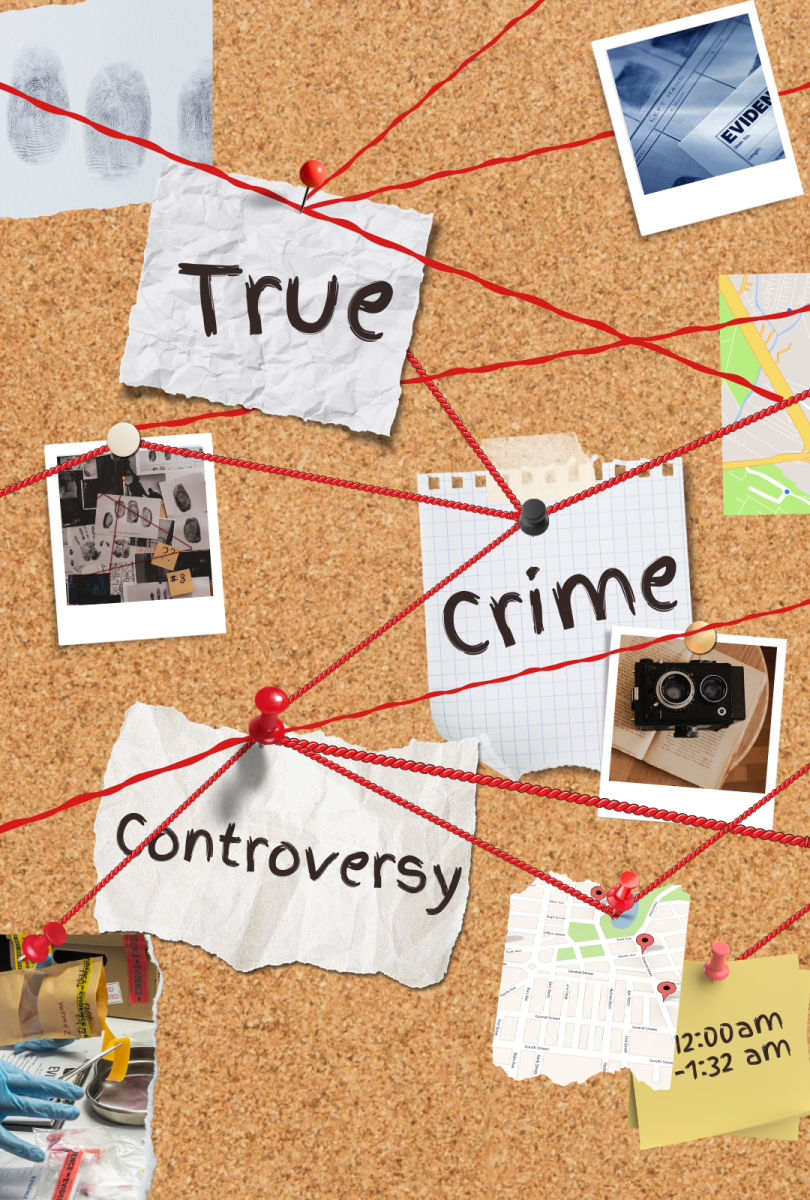True crime, a genre that examines actual crimes and turns them into entertainment, has gained popularity over the past decade, raising ethical concerns about its portrayal of tragedies. True crime could be a way to educate others and share stories about victims, but I believe it can also be harmful in a variety of ways.
The genre originally became popular in the 1960’s because of Truman Capote’s book “In Cold Blood,” a captivating and descriptive story of a family murder in Kansas. Today, true crime comes in various forms, including books, movies, podcasts, TV shows and documentaries.
Brendan O’Shaughnessy, a professor specializing in journalism ethics and investigative journalism at the University of Notre Dame, emphasizes the importance of ethical considerations in true crime reporting.
“I think anytime you’re exploiting your source, you are not treating them with the dignity that you should be treating a source or person,” he says.
O’Shaughnessy highlights that when reporters take advantage of the victims and their families, they are disrespecting them.
“People who are just exploiting others to make money to get their [true crime media] better to appeal to people’s interest in things that are horrific,” said O’Shaughnessy “I don’t think that that’s a journalistically ethical approach.”
The reasons why a large audience is interested in such a violent and gruesome genre continue to be studied by researchers.
“One [reason] would be just the bias that’s built into the human brain by evolution to be oriented towards things in the environment that are dangerous. We pay attention more to things that are a threat to us,” said Steve Lancaster, who teaches IB psychology at Lincoln.
Lancaster discussed the psychological reasons why people are interested in true crime, as well as the ethics and intentions behind telling true crime stories.
“If there is a direct connection to a learning target, that’s valid, then as long as you give some kind of warning ahead of time about what to expect,” he said. “But if it’s gratuitous, then I would ask why.”
Joel Laney is the forensic science teacher at Lincoln, a class where they apply scientific methods to solve crimes and provide evidence for legal proceedings. He goes more into depth about the educational benefits real crime cases can provide to the classroom, but notes how the genre itself can be harmful.
“We want to put [our learning] in the context of actual cases and case studies, so that our lab work that we’re doing is hopefully more meaningful,” said Laney. “But we make sure to be mindful of the fact that it’s someone’s personal story and be sensitive to that.”
It’s important to realize that making true crime just for entertainment can hurt the people involved by using their stories for profit. In the end, it’s crucial to tell stories in a way that respects the dignity and privacy of the people involved.

